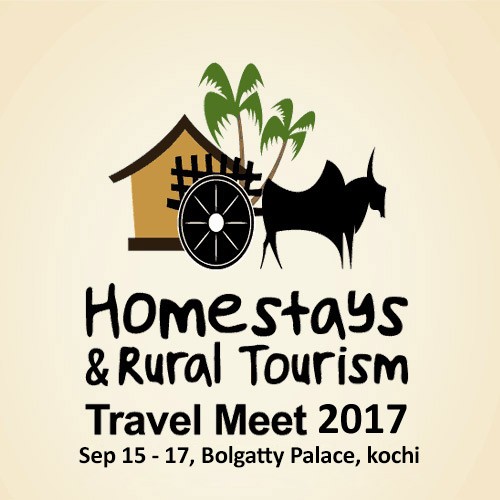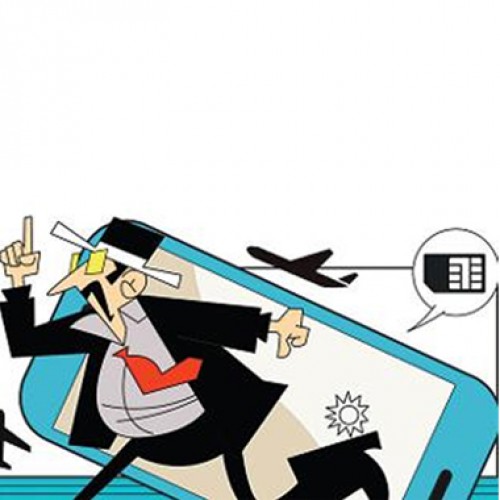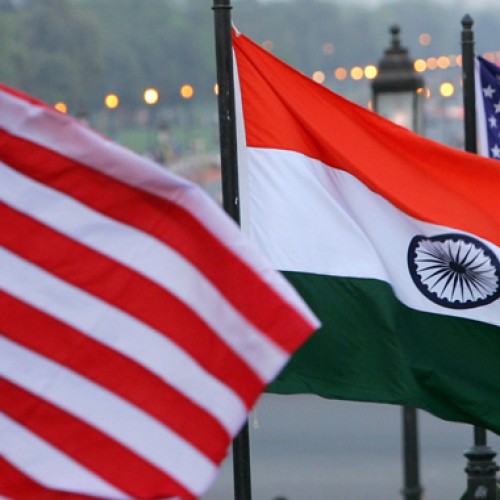2020: the Year of Lessons and Innovations for South African Tourism
Strategies
2020 did not only see massive disruptions but also accelerated innovations, brought in new opportunities and widened existing perspectives. For South African Tourism, 2020 provided an opportunity to reinvent itself, says NELISWA NKANI, its Hub Head for MEISEA. According to her, while 2020 took some things away, it also forced them to grow and gain a new perspective. TnH spoke to Nkani to know about South African Tourism’s reopening efforts, its post-Covid strategy and priorities for the New Year. Regarding the Indian market, NKANI says that South African Tourism is looking at maintaining a consumer-centric approach.
Words by Prem Kumar
Q. 2020 was a nightmare year for the tourism sector across the globe. How was the experience of South African Tourism?
Replete with major trials and challenges, 2020 was unlike anything we ever witnessed before. However, the year also brought a myriad of lessons and opportunities. It was the year that set the stage for innovations and ingenuity in our systems and processes.
For the travel industry, the pandemic was the biggest challenge we ever faced. It stood out from other challenges the industry usually has to face because this time we were fighting the unknown. There were financial and job losses in every sector, which initiated a ripple effect in a situation that was already fluid. While the year took away some things, it also forced us to grow, evolve and gain a new perspective. Moreover, the earth finally had some breathing space and a chance to restore. We saw carbon emissions fall sharply, and wildlife reclaimed niches they once called home even as the air became cleaner.
2020 gave us the opportunity and space to reinvent ourselves. It allowed us the time to bring in disruptions, innovations, adopt sustainable alternatives, and use technology to bring about tangible business solutions and substitutions.
Q. How is South African Tourism meeting challenges caused by the pandemic?
In South Africa, we remain committed to the safety and health of our visitors. Over the last few months, a lot of consultative work and focus has been placed on both, de-risking the sector and putting the health and operational protocols in place for the safety of tourists and employees.
We have internationally benchmarked bio-safety systems in place at all private game lodges and government-owned national parks, shopping hubs, restaurants and accommodation facilities. These safety initiatives include a lesser number of tourists in a safari vehicle, digital menus, touch-less parking, e-payment systems, hand-sanitization and disinfection stations, individually sanitized and packed takeaways/room service etc.
Travellers intending to visit the country will be expected to produce a PCR (polymerase chain reaction) test that is not older than 72 hours from the time of departure from the country of origin to South Africa. Travellers can also expect precautionary and sanitation measures at various transit touchpoints including international and domestic airports, and car rentals.
Q. Tell us about your efforts to restart tourism in the post-Covid-19 era.
Indian travellers are resilient, with a large appetite for travel and new experiences. They may, however, now choose to travel differently – we can expect to see a rise in FITs, demands for drivecations, and flexible booking dates. We are looking at introducing newer, customized experiences, products and itineraries for this rising FIT traveller segment.
We are aware of the effect the pandemic has on the global economy, and have been repackaging accordingly, with the intent to offer consumers’ excellent deals and discounts. Safety measures are transparent and well-communicated, have been factored into overall packages, so that there is no surprise or extra-cost. We are also in conversation with several airlines to figure out how best we can optimize and reduce travel costs. We believe that the competitive pricing edge that South Africa has over most other long-haul international destinations will go a long way in aiding travel conversions.
Prior to the pandemic, we had announced the rolling out of e-visas for Indian travellers. When pilot runs were on, the pandemic hit us, thus delaying the process. We want to assure Indian travellers that we are committed to issuing e-visas as soon as possible, to make it much easier for Indians to come to South Africa. We want travellers to return home enriched after an easy, fluid journey.
Q. What would be your priorities for the New Year?
With international travel reopening and the hope of a vaccine coming in by the first half of 2021, we intend to focus on the following:
Inspiring consumers to travel again:
Consumers will seek assurance and guidance, as they consider and plan to travel. They should be informed of all processes and requirements by the destination or transfer facilities, in order to avoid a mismatch in expectations and allow for smooth journeys.
Promoting new regions & safe experiences:
Given that travellers are predicted to seek offbeat destinations, with good connectivity and a large number of activities within confined areas – we anticipate that South Africa’s new regions and geographies will be a hit with Indian travellers in 2021. For the next couple of months, travellers can enter through cities that have restored international connectivity, so either through the Mother City – Cape Town, Johannesburg or Durban, and use these cities as a gateway to the rest of these picturesque new regions, including the stunning and relatively unexplored Port Elizabeth, Robertson, West Coast, the Drakensberg in KwaZulu-Natal, Panorama Route (Mpumalanga) and the Garden Route.
With regards to experiences, we will focus on leveraging the USPs South Africa has for the cautious post-Covid travellers. For example, the appeal of a safari holiday has increased given its natural ability to support social distancing. With the natural world as its stage, the essence of a safari has not changed. However, guests will experience enhanced sanitization policies, regular temperature checks for guests and staff, smaller camps and smaller game drive groups to ensure social distancing is maintained even in the safari vehicle. These safety and hygiene protocols can be expected across as all adventure, culinary and cultural attractions.
Targeting niche communities:
A large focus area for 2021 will be mobilizing niche communities in India. We expect self-drives to be popular with Indian travellers given that South Africa has some of the most beautiful self-drive routes in the world. Safe car rentals will play an important role in the tourism ecosystem, as a larger number of travellers is turning to self-drives for privacy and safety. The fact that Indian licenses are valid in South Africa is a huge bonus!
We want to invite biking groups to explore the vast, spectacular South African terrain. We are also looking at having more runners from India participate in uniquely South African ultra-marathons like the Comrades Marathon and the Two Oceans Marathon.
Sustainable tourism:
We anticipate that the immersive travel trend will continue in the post-Covid world, with a greater focus on sustainability. This means that travellers will be more conscious of where they spend money, what kind of accommodation they choose, where they dine, and how they travel locally.
South African Tourism is enhancing efforts to make its itineraries, properties and transport facilities more sustainable. We also intend to showcase our sustainable product offerings and ecotourism experiences, like cycling tours, nature safaris, conservation projects and rural experiences.
Q. Post-Covid, how is South African Tourism changing its strategy to meet new challenges, tap new opportunities?
Our marketing and communication approach is extremely focused – we are looking at maintaining a consumer-centric approach, while also building trust and aspiration, and instilling confidence in consumers intending to travel. Last year we launched our Complete Confidence campaign, where we released a series of videos showcasing our precautionary measures to reassure and invite tourists, as international borders reopen. These short-format videos make for easy digital guides and information sources and educate tourists about mandated protocols in place to ensure they have a safe and memorable experience.
We are also looking at videos highlighting safety regulations for MICE experiences, and curating videos displaying precautions that travellers can expect at various transit touchpoints including airports and car rentals. Car rentals are expected to play an important role in the tourism ecosystem, as a larger number of travellers is turning to self-drives for the assurance of privacy and safety. Our marketing mix will include consumer campaigns, media and influencer advocacy, as well as engaging easy-to-consume content on owned and earned, digital, print and electronic platforms.
Q. In India, how are you keeping the trade engaged and updated?
While the pandemic does not come with a predictable timeline, we at South African Tourism, continue to utilize this window of opportunity to proactively and meaningfully engage with our trade partners in India, as well as the local DMCs in South Africa. We are looking at up-skilling and reskilling ourselves and our partners, to identify synergies and sell South Africa in the best possible way to the Indian consumer.
We have been constantly communicating with key travel agents and tour operators directly through two-way knowledge exchange webinars, while also conveying timely and focused destination updates. In India, South African Tourism has invested in virtual training of over 150 trade each week – across all travel verticals. We have also been constantly engaging with consumers, corporate CEOs and MICE leaders to understand consumer travel sentiment first-hand.
We continue to use digital mediums to educate our trade partners, who ultimately sell the destination. SA Specialist, our fun and interactive online learning programme, has witnessed an increase in the number of Indian travel trade undertaking the training, as trade agents are using the pandemic period to upskill and reskill themselves. At present, we are in the process of setting up a platform for the Indian trade to interact directly with Provinces and local tourism boards in South Africa – we hope to unlock mutually profitable synergies through these associations. We also hope to rework itineraries to ensure consumers get the best possible packages at the best rates.
You might also like
International Homestay and Rural Tourism Travel Meet in Kochi
Kerala Tourism will organise the second edition of the International Homestay and Rural Tourism Meet in Kochi from September 15. The three-day event, scheduled to be held at Bolghatty Palace,
Foreign tourists to get sim cards at 12 airports
The home ministry’s new year gift to its foreign tourists from 161 countries will be a pre-loaded sim card at 12 major airports of the country after home minister Rajnath
Indian visitors in US spent a record $13.6 billion in 2016 says Report
Indian visitors spent a record USD 13.6 billion in the US last year, positioning India on the sixth spot among the top 10 international markets for the US in terms








